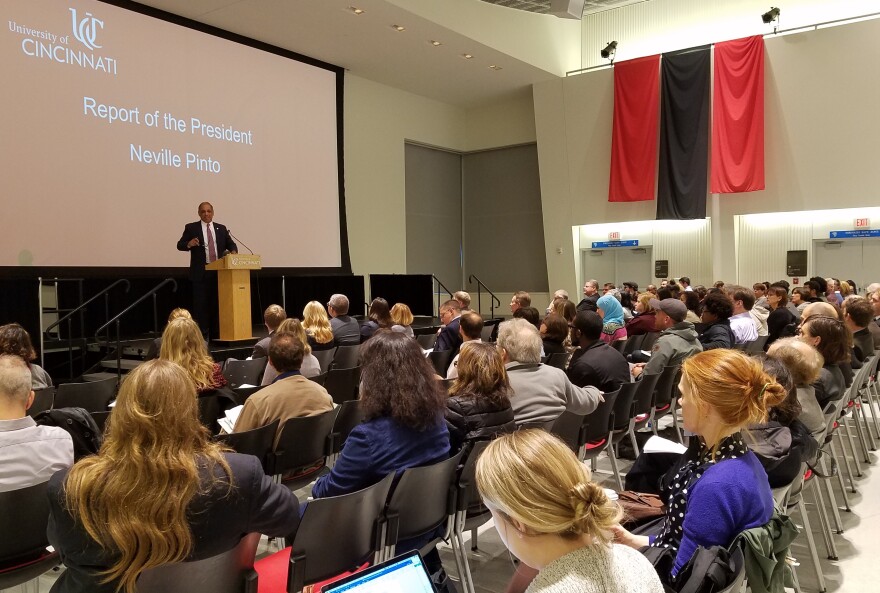University of Cincinnati President Neville Pinto says he agonized over the decision to allow white supremacist Richard Spencer to speak on campus.
He tells a university faculty meeting safety will be paramount. He also says he thinks the university will come out stronger in the end.
The Board of Trustees Tuesday condemned Richard Spencer, but affirmed Pinto's decision - and he says it was indeed his decision - saying the board "believes in upholding the First Amendment and recognizing the fundamental role of free speech at a public university."
No date or time is set for Spencer's visit. He was not invited by the university.
Several university offices are working on alternative programming ideas. Pinto says he thinks the university "can beat Spencer at his own game" by being a stronger voice.
A coalition of student and community groups is also planning a coordinated action opposing the visit.
Some faculty question why UC feels it must allow a white supremacist, questioning how much it might cost the university, why the larger university community wasn't involved in the decision, and why UC didn't just say 'no' and deal with a threatened lawsuit.
The university's legal counsel, Lori Ross, fields some of those questions. "To date, no school has been successful in court," she says. Schools that lose lawsuits are at the mercy of a judge choosing the place, the date and the time. As it is, UC will choose all three.
Ross notes UC has a policy allowing third party groups - ones not invited by the school or a student group - to request use of university spaces, but gives priority to students and university needs.
Ross says it's too soon to know how much security for the speaking engagement might cost. University of Florida President Kent Fuchs estimates it cost his school $600,000.
She adds the university is trying to pick a date, time and location that maximizes safety and limits disruption to education.



